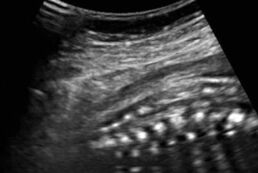Baby's Height and Weight
At 31 weeks of pregnancy, the baby’s height is about 41-42 centimeters, the size of a coconut. Their weight is about 1400 grams.
Development of the Baby

Although the fact that your belly has grown a lot may cause you some difficulties, try to enjoy the pregnancy. Keeping track of week-by-week progress will give you an idea of how your mysterious little one is doing.
Here are the development of the 31-week-old baby and the changes in you…
Your baby’s organs and body systems are almost fully formed. Now, the biggest improvements will be in height and weight gain. Weekly weight gain is an average of 500 grams.
At 31 weeks of pregnancy, the fine hairs on your baby’s skin, called Lanugo, continue to disappear rapidly. The Vernix Caseosa layer, which has the task of keeping the body warm and strengthening the immune system, has also become quite thick on the skin surface.
The fingernails are fully extended, the toenails have yet to grow.
At 31 weeks of pregnancy, the baby can now close and open their eyelids much better. The vision and focus function of their eyes has also been completed.
The brain and nervous system are fully developed. For this reason, they make more conscious movements every day.
Surfactant production continues in the baby’s lungs at 31 weeks of pregnancy and this production is provided by adrenal glands. Their lungs continue to develop fully enough to allow them to breathe comfortably in the outside world every week. Babies born after 36 weeks can breathe almost unaided, as they will be in the maturation phase for an average of 5 more weeks.
Their sucking reflex improved greatly as they sucked their thumb or other fingers.
It will take 35-36weeks to fully develop. For this reason, if they are born prematurely, they may have trouble sucking on the breast.
At 31 weeks, the baby urinates about a pint a day. Urination is very important for the regeneration of amniotic fluid.
At 31 weeks of pregnancy, the testes begin to produce testosterone in male babies. His testicles are moving from his groin to his bags.
The development of the clitoris in female babies is largely complete.
Baby Movements at 31-Weeks Pregnancy
This week, your baby’s movements have slowed down as their space has narrowed. But that doesn’t mean they move at all. For this reason, if they don’t not move for a while, inform your doctor.
At 31 weeks of pregnancy, your baby can now sleep longer. Therefore, they may take a break from moving for a few hours.
At 31 weeks of pregnancy, your baby is expected to be upside down (vertex position). But if your baby isn’t back yet, don’t worry right away. In these weeks, 25-30 percent of babies are still upside down. There is a chance that your baby will turn upside down by the 38th week. 4 percent of babies are born breech.
Tiny strokes and stretching movements during 31 weeks of baby movements can sometimes hurt because their muscles are strengthened.
Ultrasound Image

You may be surprised to see how much your baby has grown in the 31-week pregnancy image. You will also see that their place is narrowing down.
You can also see that their face is fully developed.
In the 31-week pregnancy image, it is possible to see your baby yawning, kicking, sucking or hiccuping.
Changes in the Mother's Body
How many months is 31 weeks? You are completing the 7th month of pregnancy.
Your blood volume has increased to 4.5-5 liters. When your baby’s head is turned down, the height of the peak of your uterus (fundus) may also decrease slightly. This may cause your belly button to protrude a little. This protrusion is noticeable when you wear a thin outfit.
At 31 weeks of pregnancy, your hip and lower back pain may increase. You may have sciatic pain that you will feel from the hip to your legs.
Points need to be considered
From the 31st week of pregnancy, your belly will grow to astonish you every week. It’s best not to compare the size of your belly with other expectant mothers in the same weeks. If anyone comments on this, cover your ears. Every woman’s body type is different from each other. For this reason, the size and shape of the abdomen may be different during pregnancy. Your abdomen size does not indicate whether you are going to give birth to a large or small baby. Talk to your doctor if you have any concerns.
From this week on, you can start discussing your birth preferences with your doctor. You can ask him/her if he/she works with a midwife who can take care of you one-on-one at birth. This is because midwives are the ones who specialize in “giving birth”. If your doctor says that you cannot provide one-to-one midwife support, you can arrange a doula (birth supporter) to encourage you at birth and guide you about baby care before and after birth. You can also choose someone who is a midwife and has extra doula training. Both will ensure that you can have a healthy and positive birth experience (you can read more about birth preferences in our articles on week 33 and week 34).
There is a high chance of living in a 31-week-old baby, such as preterm birth. Knowing the factors that increase the risk of premature birth is important for you to take precautions. Factors that increase the risk of premature birth include:
– Stress,
– Smoking or drinking alcohol,
– Inadequate nutrition and inadequate weight gain,
– Doing heavy work or standing up for days without rest,
– Taking medication every day,
– Sexual intercourse (If the woman has an orgasm, it may cause contractions in the uterus. If there are other risk factors that may trigger childbirth, it should be preferred that the expectant mother does not have an orgasm in the last three months. Be sure to talk to your doctor about this matter.),
– Sensitivity in the uterus, structural abnormalities and weakness in the cervix,
– Placenta previa (proximity of the placenta to the cervix),
– A chronic disease in the mother,
– Having an infection,
– The age of the expectant mother is too young or she is at an advanced age,
– Multiple pregnancy,
– Anomaly detected in the baby.
Braxton Hicks Contractions
Canbebe on Social Media!
Join our community of mothers and fathers on social media. Be close to caring community, sharing advices between each other on our everyday life with our baby.
